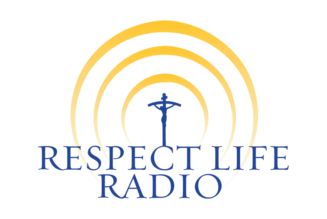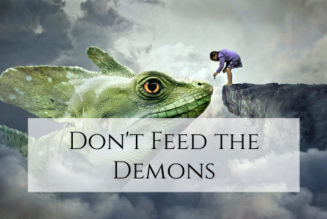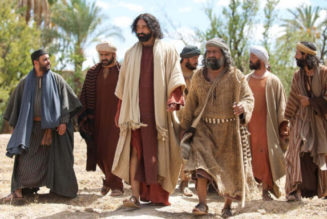By Dr. Jeff Mirus ( bio – articles – email ) | Dec 10, 2024
It’s amazing how out of touch with current reality we can become as we age. I’ve mentioned before Hilaire Belloc’s interesting thesis that people in their sixties tend to still fight the battles in which they were engaged in their twenties and thirties, even though current problems might be quite different. The battles we keep fighting also depend on our personal inclinations, and if our inclinations haven’t changed (as, for example, through a deepening conversion) we are even more likely to bypass current reality in favor of attacking old straw men. But there is something far deeper at stake than our own theories of what is wrong with the Church and the world.
I am sure examples could be taken from my own life and the things I have always harped on. But a far more prominent example is Pope Francis, who has for the umpteenth time urged a new approach to theology. In particular, Francis has decried the theological manuals of the past as “all closed, all museum pieces, all bookish, without making you think.” This was a legitimate concern in the 1950s and early 60s (Pope Francis turned twenty-four in 1960), but by the late 60s and 70s we were awash in the opposite problem, that is, “theologies” which were deliberately designed to undermine both Divine Revelation and the Natural Law.
Today, true theology (faith seeking understanding, and therefore understanding presupposing faith) is already on the rise again in opposition to an entrenched relativism which is at last under heavy attack. Contemporary faithful Catholic theologians and philosophers are known for having developed fresh explications, clarifications and defenses of Divine Revelation which take into account not only contemporary questions but interdisciplinary contributions to our understanding. They encourage increased fidelity without resorting to the rote manualist formulas. (But please note that even the old “manuals” were mainly a way of conveying sound theological explanations and conclusions in seminaries. A fundamental grasp of the explication of Divine mysteries as stabilized by previous generations is not a completion of the theological task, but neither is it a bad starting point. Moreover, not every great priest is—or needs to be—a great theologian. What we must all be is servants of the Gospel.)
Yet Pope Francis calls for “a wide-ranging imagination and thinking” in theology as if there has been no development among faithful theologians over the past two generations. Unless one is both fighting old battles and stubbornly maintaining that Our Lord considered the natural law outmoded, it is very hard to greet the Pope’s call for “new approaches” without a suspicion of the current pope’s legacy. To be sure, he could be secretly calling for an end to the sterile theological rebellion of the neo-Modernists, and we are free to hope this is what he has in mind. But nobody who has followed this pontificate closely is likely to reach that conclusion.
Of course, I do not mean to say that theology is primarily concerned with the natural law, for theology must always be concerned primarily with what we call Divine Revelation, even though the natural law is God’s revelation as perceived through God’s creation. Nonetheless, we all know that the primary concerns of our wayward culture today are moral rather than doctrinal. Indeed, they are primarily sexual, but in ways that affect both nature and supernature. For they include everything from sexual morality and gender confusion in daily life to the distinction between male and female in Holy Orders.
Therefore, we may prudently raise the following question: Which recent pope has done most to tighten the Church’s grasp of the natural moral law (answer: the personalist philosopher St. John Paul II) and which has done most to loosen that grasp (answer: Francis). We might also ask which recent pope has done most to spark a genuine renewal of Catholic theology (answer: the ressourcement theologian Benedict XVI) and which has done most to encourage theologians in re-shaping Divine Revelation to justify contemporary sexual morals (answer: Francis).
In any case, perhaps the most obvious and striking thing about the current pontificate is what may easily be considered an ill-judged and constant continuation of the fight against the 1950s sin of “rigidity”. If that isn’t locked in the past and out of touch with the present, it is difficult to know what is.
Prolonging the old battle against “rigidity”
The current pontificate, which has bent over backwards to accommodate our society’s manifestly false and disordered preoccupation with the justifiability of every form of sexual activity, has been nothing short of a theological, philosophical, moral and pastoral disaster. It has undermined confidence in the Catholic understanding of human sexuality while going right up to the formal limit of what a Pope is protected by the Holy Spirit from expressly teaching.
Although the pontificate has had some fine moments, and Francis’ expression of the Catholic Faith includes many sound comments and reflections, he has most consistently cast into doubt Catholic teaching and the natural law as these apply to human sexuality. He has done this through his personal comments (beginning with the famous “who am I to judge?”) and his appointments of accommodating bishops and cardinals. He has also done this through a number of his public documents—which tend to be very firm about those things which the secular world can applaud, and very reticent in expressing those truths which the secular world will only condemn.
Perhaps all of this is most evident in the Pope’s choice of close collaborators, his academic and journalistic associations and appointments, and his unceasing emphasis on synodality as a way to solve problems (something which, as many commentators have observed, he continually preaches and only rarely practices). Again, it is almost as if Pope Francis is in a perpetual battle against the settled inflexibilities of the 1950s, as if he still believes that a greater openness to secular complaints and modern ideas can be a potent source of Catholic renewal.
But the enemy today is not the complacency and over-simplifications of the 1950s, or the Catholic mirroring of the public certainties which were still highly favored in the first decade following World War II. We are not fighting political ideologies today; we are fighting the total collapse of a Western culture which (perhaps unknown even to itself) was still largely rooted in Christian habits. Despite growing fault lines, there was much in the dominant culture of the early post-war years which the Catholic Church could still recognize as her own, even if the populace as a whole did not know the source.
But today there is hardly anything at all. Today, an emphasis on openness to post-modern insights is an openness to the rejection of Christ, which signals a refusal to preach the Gospel. For a Pope today to see in the Church a lack of openness to the wide array of goods held and cherished by the dominant culture is for a Pope to put the very identity of the Body of Christ at tremendous risk. To suggest just one aspect of the current folly, nothing has ever been able to be built on the vaunted “brotherhood of man” unless that brotherhood is rooted in the Sonship of Jesus Christ. Nothing has ever been able to be salvaged from the wreckage of human culture unless it is salvaged from the wood of the Cross.
When the Church understands in herself once again that she alone possesses the fullness of Christ’s Presence in the world, then the Church can begin once again to announce the good news. The Church (which includes all of us) needs to get over her contemporary preoccupation with appearing open and reasonable. It is long past time to stop fighting the last generation’s battles. Instead, she needs once again to know nothing but Christ and Him crucified. For the hard truth today is just as St. Paul described it to the worldly Catholics in the highly advanced culture of Corinth:
Has not God made foolish the wisdom of the world? For since, in the wisdom of God, the world did not know God through wisdom, it pleased God through the folly of what we preach to save those who believe. For Jews demand signs and Greeks seek wisdom, but we preach Christ crucified, a stumbling block to Jews and folly to Gentiles, but to those who are called, both Jews and Greeks, Christ the power of God and the wisdom of God. For the foolishness of God is wiser than men, and the weakness of God is stronger than men. [1 Cor 1:20-25]
Sound Off! CatholicCulture.org supporters weigh in.
All comments are moderated. To lighten our editing burden, only current donors are allowed to Sound Off. If you are a current donor, log in to see the comment form; otherwise please support our work, and Sound Off!











